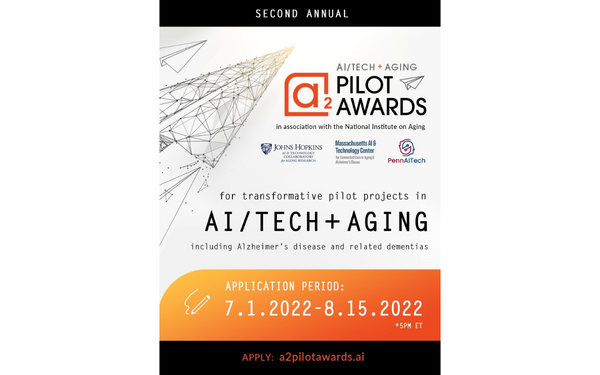The National Institute on Aging reports that the number of Americans aged 65 and over is more currently than at any time in the country’s history, and it is only likely to continue rising (NIA). About one in nine Americans aged 65 and more suffer from Alzheimer’s disease, illustrating the difficulty presented by increasing longevity.
The goal of the a2 Pilot Awards is to inspire innovation in technologies for the ageing population. The NIA will invest $40 million over the course of five years in the 33 initiatives that were declared as winners today. Almost all of them make use of some kind of AI or ML, and almost as many women (40%!) hold executive positions in the companies.
The head of the organisation in charge of the prizes, Stephen Liu, expressed his desire to see more young IT entrepreneurs enter the agetech market to TechCrunch.
He went on to say, “We have two big mega-trends, AI and the demographics of ageing, and it’s irrefutable that there is a large, growing, massive, future-proof market that they should focus on,” describing the market as “largely uncontested, growing, future-proof” and promising “unprecedented opportunities driven by AI.”
As part of the a2 Collective, the initiatives will collaborate with three AITCs. Three universities—Johns Hopkins, UMass Amherst, and Penn—serve as permanent homes for the AITCs.
While the majority of the 33 pilot projects are focused on cognitive decline, some are also addressing frailty, comorbidities, delirium, palliative care, social isolation, and visual impairment. Funded projects will get up to $200,000 in zero equity grants to cover direct expenditures over a one year period, for a grand total of $5 million.
It’s estimated that almost half of the first award submissions originated from for-profit businesses. There are many examples of partnerships between businesses and universities. A2 Collective actively sought for potential candidates by contacting healthcare-related accelerators, universities, and VCs.
When it comes to this initiative, “we absolutely have an eye on commercial usage,” or “some form of commercialization of the research,” as Liu put it. Whether a physician, an elderly American, a caretaker, or a nurse, “you want to see an effect where it is going to be utilised by someone” in the next several years.
Autotune Me, which employs music to treat Alzheimer’s disease and associated disorders, is one example of a project that made the cut. Bestie Bot is a telemedicine assistant that employs RGB-D depth cameras and thermal computer vision to monitor and examine patients remotely. Additionally, WellSaid.ai uses conversational AI to do health evaluations and identify early warning indicators of dementia and cognitive impairment in individuals in their homes.
Health care systems, clinicians and researchers, venture capitalists, and public health institutes with a focus on agetech and elder care are also partners of a2 Collective’s.
Funding decisions and access to professionals in gerontology, geriatrics, Alzheimer’s disease, and related fields are all handled independently by each AITC. According to Liu, the goal is to provide each initiative with the same level of assistance and mentorship that is often reserved for pre-seed firms in accelerator programmes.
The process of choosing the finalists for the second annual a2 Pilot Awards has already begun. They’re expected to be made public in the spring. Additionally, between May 1 and July 31, the a2 Collective will be accepting submissions for its third competition.
According to TechCrunch, Liu predicts a meteoric rise in agetech.
“As the cost of computing goes down and our AI model capabilities go up, I think we can expect a Cambrian explosion of new technologies that will dramatically help older Americans, including those with Alzheimer’s, live longer and better lives and possibly help out our beleaguered health care system,” he said. It’s still in its infancy, and we’re just getting started.

Subtly charming pop culture geek. Amateur analyst. Freelance tv buff. Coffee lover
